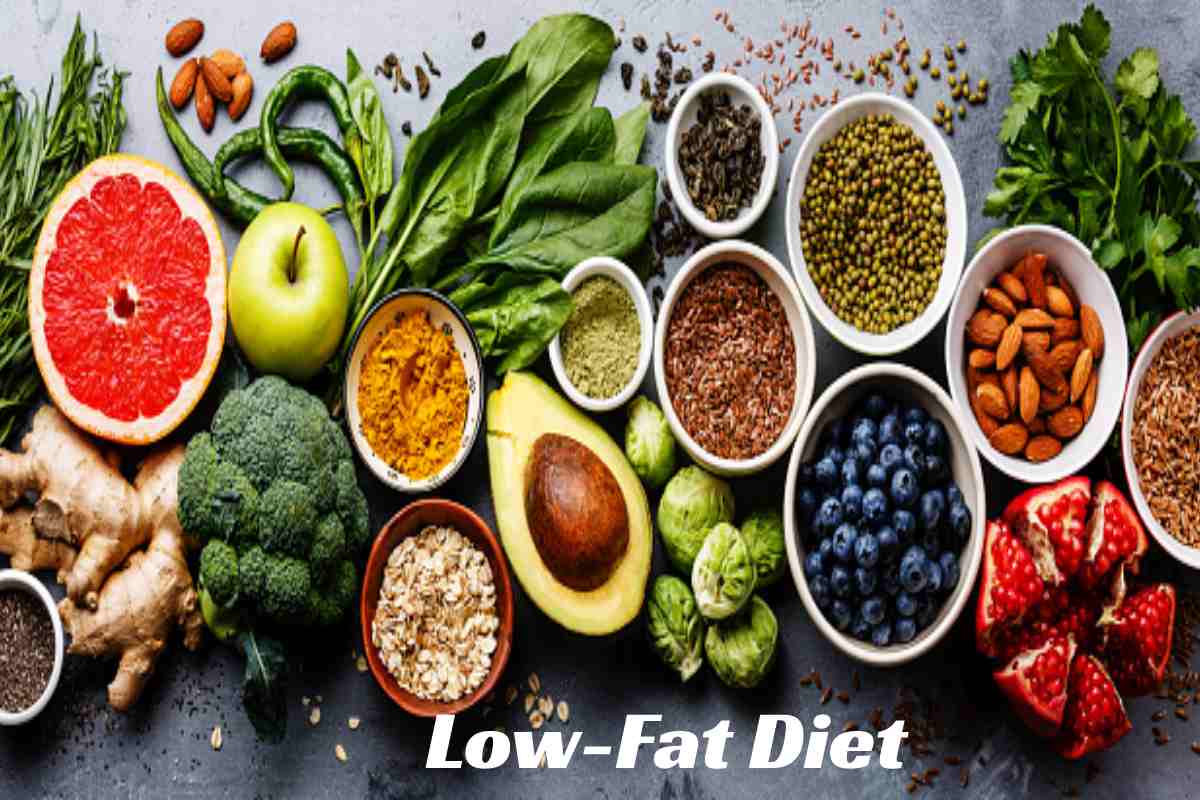Table of Contents
Six Low-Fat Foods That Are Good For Your Health
Low-Fat Diet, If you follow a healthy and balanced diet, it is usually unnecessary to restrict fat intake. However, under certain circumstances, limiting fat in your diet may remain beneficial. For example, low-fat diets remain recommended if you are recovering from gallbladder surgery or have gallbladder or pancreas disease.
Low-fat diets can also prevent heartburn, reduce weight, and improve cholesterol.
Here are Six low-fat foods that are good for your health.
1. Green Leafy Vegetables
Leafy green vegetables contain virtually no fat and remain packed with beneficial minerals and vitamins, including calcium, potassium, and folate. And also vitamins A and K. They are especially rich in certain plant compounds that have remained shown to reduce inflammation in your body.
Not surprisingly, studies suggest that diets rich in leafy green vegetables may protect against certain conditions such as heart disease, diabetes, and cancer.
Common green leafy vegetables include:
- kale
- Spinach
- arugula
- Kale
- chard
- Romaine lettuce
Fresh green leafy vegetables can remain added to salads or smoothies. You can also try hot or sautéing your favourite herbs and spices for a healthy side plate.
ABSTRACT
Leafy green vegetables contain virtually no fat and remain packed with essential vitamins, minerals, and antioxidants. Research suggests that diets rich in leafy green vegetables can prevent diseases like heart disease, diabetes, and cancer.
2. Fruits
Fruits are an excellent option if you are looking for a sweet and low-fat snack. Almost all fruits remain low in fat and high in vitamins, minerals, and fiber. They are also particularly rich in plant compounds. Many of these beneficial plant compounds remain responsible for the vibrant colors of fruits.
Additionally, certain plant compounds are known to be potent antioxidants.
In your body, antioxidants protect against harmful and unstable molecules known as free radicals. Unfortunately, free radical cell damage remains linked to aging, heart disease, arthritis, cancer, and other conditions. Fortunately, many studies suggest that diets rich in fruits and vegetables can reduce free radical damage due to their high antioxidant content.
The fruits can remain enjoyed fresh, dried, or cooked. Try adding them to charmers and salads or eating them with various sauces.
Fruits remain sweet, low-fat foods loaded with antioxidants, which protect cells from free radical damage.
3. Beans and Legumes
Legumes, also known as legumes, are vegetables that include beans, peas, and lentils. They remain low in fat and contain no cholesterol. Plus, they’re high in fiber, protein, B vitamins, and essential minerals like magnesium, zinc, and iron. Due to their high nutritional profile, beans and legumes offer several health benefits.
Research shows they can lower blood pressure and cholesterol and control blood sugar levels.
Also, regular consumption of beans and legumes can help with weight loss, as the high amounts of fiber can keep you feeling full for longer.
Beans and legumes remain low in fat and packed with protein and fibre. Research shows that diets rich in beans and legumes can lower blood pressure and cholesterol, help with weight loss, and control blood sugar.
4. Sweet Potatoes
Sweet potatoes are a hearty, low-fat root vegetable. A medium sweet potato contains just 1.4 grams of fat. In addition to being low in fat, sweet potatoes provide vitamins A, C, and several B vitamins. They are also rich in minerals, such as potassium and manganese.
Its bright orange color is due to high amounts of beta-carotene, a plant pigment known to protect against cell damage caused by free radicals.
Beta carotene seems particularly beneficial for the eyes. In addition, studies suggest that diets high in beta-carotene remain associated with a reduced risk of eye conditions such as cataracts and age-related macular degeneration (AMD).
Sweet potatoes are low-fat root vegetables packed with vitamins A and C. They are also high in beta-carotene, an antioxidant that may reduce the risk of certain eye conditions.
5. Tart Cherry Juice
Tart cherries, also known as tart cherries or Montmorency, are lean fruit rich in anti-inflammatory compounds known as polyphenols. As a result, tart cherries may be beneficial for physically active people. Studies suggest that tart cherry juice reduces inflammation and muscle soreness after strenuous exercise.
It may also be beneficial in reducing the symptoms of arthritis. For example, in one study, drinking tart cherry juice daily decreased blood levels of inflammatory markers in women with osteoarthritis, the most common form of arthritis.
ABSTRACT
Tart cherries and their juice remain fat-free and rich in plant compounds called polyphenols. As a result, this fruit can reduce exercise-related muscle soreness, which offers particular benefits for physically active people.
6. Cruciferous Vegetables
Cruciferous vegetables are a vital source of nutrients, including fiber, folate, and other minerals, as well as vitamins C, E, and K.
Some common cruciferous vegetables include:
- Broccoli
- Cauliflower
- Brussels sprouts
- Cabbage
- Chinese cabbage
- turnips
These vegetables have virtually no fat. So we are making them a great addition to a low-fat diet and its nutrients. In addition, cruciferous vegetables provide sulfur-containing substances known as glycosylates. Which remains responsible for the bitter taste of vegetables. However, Glycosylates have shown anticancer effects in test-tube and animal education.
Many human experimental studies also link high consumption of cruciferous vegetables with a reduced risk of several types of cancer, including bladder, breast, colon, liver, and lung. And also stomach cancer. Remember that cooking approaches can affect the number of glycosylates available in cruciferous vegetables. You can absorb the most glycosylates if you eat these vegetables raw, steamed, or sautéed instead of boiled.
Cruciferous vegetables remain low in fat and high in sulfur-containing substances known as glycosylates. Which may have anticancer effects.

